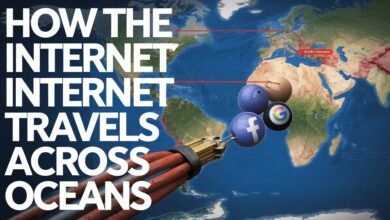
A Virtual Private Network: VPN
A Virtual Private Network, commonly referred to as a VPN, is a technology that enables users to establish a secure, encrypted connection to another network via the internet. Individuals and organizations frequently use VPNs for several reasons, including:
- Enhancing online privacy,
- Maximizing network security,
- Accessing region-restricted content,
- Masking IP addresses for certain tasks and websites.
Despite the numerous online risks, only 27.9% of U.S. residents use a VPN at home.
This article will explore when it’s appropriate to use a VPN and when it might not be necessary. We will also examine its advantages, potential disadvantages, and whether you need a VPN at home.
When To Use A VPN
A VPN works by routing your internet traffic through its servers, allowing it to:
- Conceal your IP address,
- Encrypt your data,
- Shield you from cyber threats, and
- Provide enhanced cybersecurity.
However, not every situation demands the use of a VPN. Here’s when it’s beneficial to use one.
When Using Public Wi-Fi
Public Wi-Fi networks are notoriously insecure and often targeted by cybercriminals. When you connect to a public Wi-Fi network, your data may be intercepted, monitored, or stolen. A VPN can safeguard your data by encrypting it and concealing your IP address, making it more difficult for hackers to access your sensitive information. Additionally, a VPN helps obscure your location, offering a layer of privacy when browsing online.
When Accessing Sensitive Information
If you’re accessing sensitive information online, such as banking details or health records, using a VPN is a smart move. A VPN encrypts your data and transmits it through secure servers, reducing the risk of unauthorized access to your information. However, it’s crucial to use a reliable and trusted VPN provider, as an untrusted provider could potentially lead to data theft.
When Traveling To Other Countries
In some countries, strict internet censorship laws restrict access to certain websites and services. A VPN can help bypass these limitations, allowing access to necessary content, including region-specific information sites and private servers.
When Downloading Files
For those who frequently download files from the internet, a VPN can provide added protection, especially for large files or downloads from unverified websites. A VPN encrypts your traffic and hides your IP address, making it harder for cybercriminals to target you. However, even with a VPN, it’s essential to be cautious about the files you download and the sources you use.
When Working Remotely
If you work remotely, a VPN can ensure secure access to your company’s network. It helps protect your company’s sensitive data and ensures that your online activities are not being monitored by external parties.
Pros & Cons Of Using A VPN
VPNs are powerful tools for boosting online privacy and security. However, there are both advantages and disadvantages to using a VPN. Here’s a comparison:
Pros of Using a VPN
- Enhanced Privacy: VPNs encrypt your internet traffic, making it difficult for others to monitor your online activities or track your IP address.
- Improved Security: VPNs provide an extra layer of security by masking your IP address and encrypting your data.
- Access to Geo-Restricted Content: VPNs can bypass geographical restrictions on websites and streaming platforms, allowing access to content that may otherwise be blocked in your location.
- Remote Access: VPNs enable secure remote connections to your home or work network, providing access to files and resources as if you were physically there.
- Anonymity: Some VPNs offer anonymous IP addresses, making it harder for websites to track your online behavior or identify you.
Cons of Using a VPN
- Limited Access to Streaming Services: Streaming services like Netflix and Hulu may block users attempting to access content through a VPN.
- Legal & Regulatory Issues: Certain countries have regulations that restrict or outright ban the use of VPNs.
- Risks of Free VPNs: Free VPN services often provide low security and may collect or sell your data to third parties.
Do I Really Need A VPN For Home?
VPNs are valuable for improving online privacy and security. A 2022 survey revealed that 66% of individuals use VPNs at home, citing various reasons, such as:
- Protecting browsing habits,
- Limiting data collection,
- Accessing geo-restricted content,
- Securing employer data,
- Downloading large files, and more.
Ultimately, deciding whether to use a VPN at home depends on your personal needs. In an era where cyber threats are increasingly prevalent, using a VPN is an effective way to improve your online security. Just make sure to choose a trusted VPN provider!
Hi I'm Olly, Co-Founder and Author of CybaPlug.net.
I love all things tech but also have many other interests such as
Cricket, Business, Sports, Astronomy and Travel.
Any Questions? I would love to hear them from you.
Thanks for visiting CybaPlug.net!





